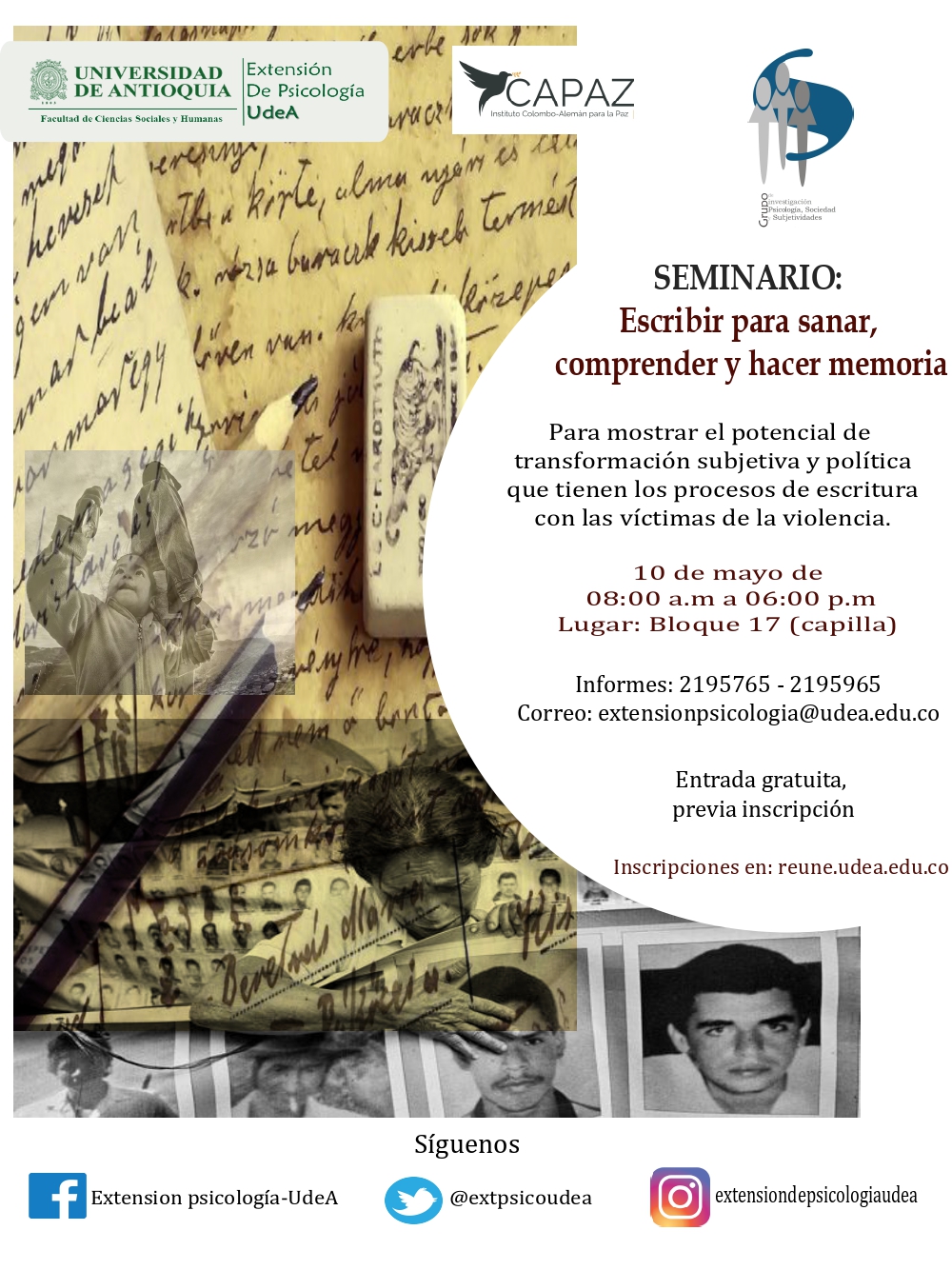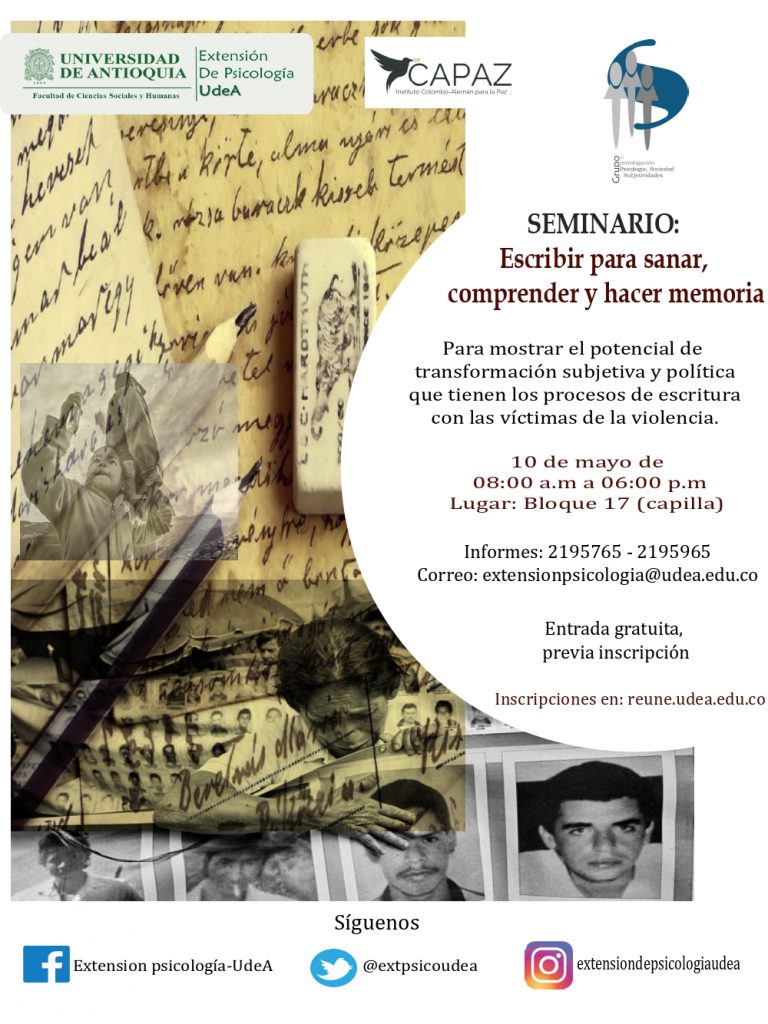
SEMINAR: WRITING TO HEAL, UNDERSTAND, AND MAKE MEMORIES
The seminar, “Writing to heal, understand, and make memories” will be held on Friday May 10, 2019, from 8:00 a.m. to 6:00 p.m. in the Auditorium in Block 17 at Universidad de Antioquia, Medellín. Entry is free. To register, please go to: reune.udea.edu.co
The seminar is part of the exploratory study supported by CAPAZ and coordinated by Prof. María Orfaley Ortiz (Universidad de Antioquia), on the possibility of using autobiographical writing as a mechanism of subjective reparation and memory building. The participants of this study were women who had been victims of the political violence in Medellín.
Below are some of the reflections of Prof. María Orfaley Ortiz on the advances of the exploratory study.
 Writing to heal, understand, and make memories
Writing to heal, understand, and make memories
People suffer great losses in the midst of violence, and these somehow limit and engender instability in their lives. But many victims find ways to overcome their situations. Through creative processes such as writing, they are able to begin journeys through which to work on what happened to them, give meaning to their past, and dream of a different future.
In the research group “Psychology, Society, and Subjectivities”, which operates within the Department of Psychology at Universidad de Antioquia, we are currently working on two research projects following this line:
The study called: “Political effects of subjectivation on victims of violence who participate in writing processes”, and the exploratory study: “Autobiographical writing, subjective reparation, and memory building in women victims of the violence”, supported by the German-Colombian Peace Institute – CAPAZ and in collaboration with researchers and professors Mauricio Hernando Bedoya and Victoria Díaz Faciolince.
Based on these studies, it has been possible for us to comprehend that societies (in their collective dimension) and people (individually) need to understand what happened to them, not in order to erase it, but rather to feel that they are subjects who can begin to construct their own way forward.
To heal wounds requires enabling and supportive spaces and strategies. These spaces that are open to memory, to bonds of solidarity, to reconsidering experiences in the company of others, are fundamental to a society that is attempting to build peace.
In our research, the victims’ writing is approached as a political practice, insofar as it enables them to “construct” themselves, it provides a space of freedom, and a way of resisting and influencing the environment.
It gives them a chance to heal, to understand what has happened, but also to communicate and share their experiences. In this respect, people understand that what they have endured means something to others, and that through their act of writing they create awareness and contribute to the construction of the memory of their country.
(Text by María Orfaley Ortiz. Revised by: Claudia Maya).
For more information:
Tels: (+574) 2195765 / (+574) 2195965
Universidad de Antioquia, Medellín – Colombia



